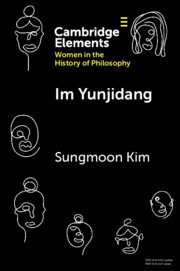This article reconsiders the sixteenth-century Idealist Neo-Confucian philosophy of Wang Yangming (1472–1529) in light of the development of twentieth-century Latin American liberation theology. After defining liberation theology, this study identifies the crucial contributions made to it by Emmanuel Levinas’s assertion of the primacy of ethics over ontology and critique of the egocentric nature of Western philosophy. It then delineates the epistemological and deontological criticisms made of Roman Catholic orthodoxy—and institutionalized Christianity in general—by Latin American liberation theologians, particularly Enrique Dussel and José Porfirio Miranda. These are compared with Wang’s critique of the Rationalist Neo-Confucianism that had been official orthodoxy and the legitimating philosophy for imperial China for three centuries. The study finds that Wang’s Idealist philosophy incorporates epistemological, spiritual, and ethical perspectives with powerful democratic and liberationist elements that prefigure the development of late-twentieth-century Latin American liberation theology. Thus, contrary to the conventional view of Confucianism as a conservative philosophy, these elements in Wang’s Neo-Confucianism render it a theology (or philosophy) of liberation.
